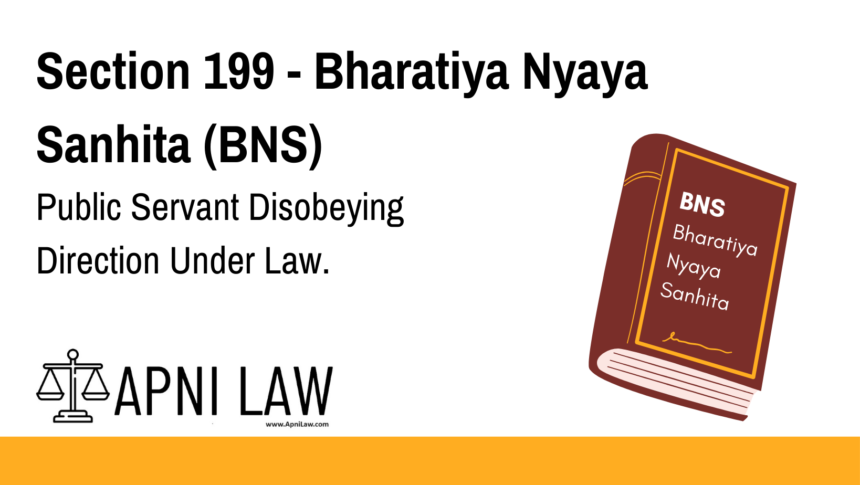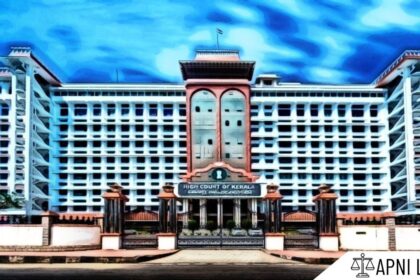Code: Section 199 BNS
Whoever, being a public servant,—
(a) knowingly disobeys any direction of the law which prohibits him from requiring
the attendance at any place of any person for the purpose of investigation into an
offence or any other matter; or
(b) knowingly disobeys, to the prejudice of any person, any other direction of
the law regulating the manner in which he shall conduct such investigation; or
(c) fails to record any information given to him under sub-section (1) of
section 173 of the Bharatiya Nagarik Suraksha Sanhita, 2023 in relation to cognizable
offence punishable under section 64, section 65, section 66, section 67, section 68,
section 70, section 71, section 74, section 76, section 77, section 79, section 124,
section 143 or section 144,
shall be punished with rigorous imprisonment for a term which shall not be less than six
months but which may extend to two years, and shall also be liable to fine.
Explanation of Section 199 BNS
Section 199 of the Bharatiya Nyaya Sanhita (BNS), 2023, establishes legal accountability for public servants who knowingly disobey legal directions concerning investigations or law enforcement duties.
Key Elements of Section 199 BNS
- Who is covered?
- Public servants involved in investigations or law enforcement.
- What constitutes an offence?
- Unlawfully summoning a person for investigation.
- Disobeying legal rules during investigations.
- Failing to record a cognizable offence under Section 173 BNSS.
- Punishment:
- Minimum imprisonment of six months.
- Maximum imprisonment of two years.
- Fine (amount determined by the court).
Illustration of Section 199 BNS
Example 1: Illegally Summoning a Person
A police officer summons a citizen without legal authority to appear for an investigation into a non-cognizable offence. Since the law prohibits such an action, the officer has committed an offence under Section 199 BNS.
Example 2: Manipulating Investigation Procedures
An investigating officer, despite legal requirements, intentionally ignores key evidence to protect a powerful accused. Since this prejudices the rights of the victim, the officer is liable under Section 199 BNS.
Example 3: Failure to Record an FIR for a Cognizable Offence
A person approaches a police station to report a cognizable offence, such as a case under Section 64 BNSS (murder). The officer refuses to record the complaint, violating Section 173 BNSS. This act is punishable under Section 199 BNS.
Common Questions and Answers on Section 199 BNS
1. What is the key difference between Section 198 and Section 199 BNS?
- Section 198 BNS punishes public servants for any kind of legal disobedience that causes injury.
- Section 199 BNS is specific to violations related to investigations and FIR registration.
2. What is the minimum punishment under Section 199 BNS?
- Minimum punishment is six months of rigorous imprisonment.
- Fine is also mandatory.
3. Is Section 199 BNS a cognizable offence?
- Yes, the offence under Section 199 BNS is cognizable, meaning police can arrest without prior approval from the court.
4. Can an officer be suspended for an offence under Section 199 BNS?
- Yes, suspension or disciplinary action can be taken against the accused public servant.
5. What happens if a police officer refuses to register an FIR?
- If an officer fails to record an FIR for a cognizable offence, they can be prosecuted under Section 199 BNS, and the complainant can approach higher authorities or the court for redressal.
Conclusion
Section 199 BNS is a critical provision to ensure police accountability and protect citizens’ rights during investigations. It enforces strict punishments for public servants who violate investigation procedures or fail to register serious offences.
For more legal insights, visit ApniLaw today! 🚀








